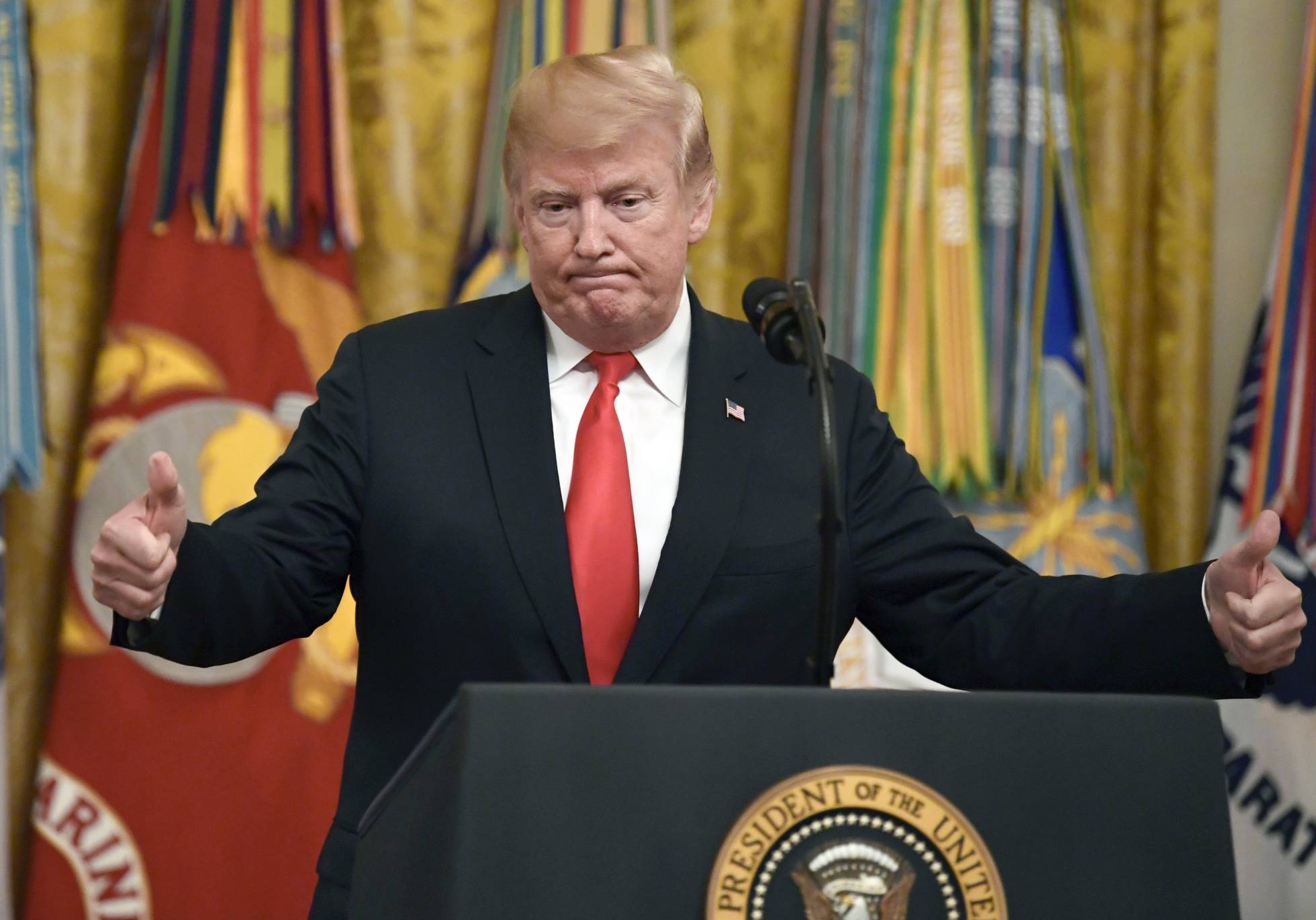
The president lacks the intellectual and ideological coherence to be labeled such a thing.
A new permanent detail was added to the political discussion being repeated all over the world. This addition is a result of the American president’s ideas and actions since he arrived at the White House: Is Donald Trump a fascist? There is a division between those who think so, and those who disagree. The group that agrees sees an intellectual and ideological coherence in the Republican president. The latter consider him a vulgar character with far-right and supremacist ideas, which trivialize the historical concept of fascism. It is not the same thing. In the first case, he is described as a fascist, while in the second, the word is meant as an insult. There are also those who think this is a pointless discussion, and that in Trump’s case, the law of parsimony, also known as Occam’s razor, applies: The simplest solution is usually correct.
In a recent edition, the British magazine Prospect dedicates one of its traditional duels to two intellectuals who take part in this debate. The one who believes Trump is connected to fascism starts by explaining that his slogan “America First” had been used before by some of the small fascist and crypto-fascist groups that first emerged in America during the ‘30s and ‘40s.
In his incredible novel, “The Plot Against America,” Philip Roth describes how, in 1940, an illiterate aviator, isolationist and anti-Semite defeated Franklin D. Roosevelt, the Democrat who took on the Great Depression. The “Lindbergh era” had begun in the United States. Charles Lindbergh, a hero who made the first solo nonstop flight across the Atlantic Ocean, was a representative of a committee called “United States First,” and openly declared his sympathy for Adolf Hitler.
In contrast, the intellectual who stands by the idea that it is too inflexible to call Trump a fascist claims that the president probably did not know about this history and used the slogan “America First” simply as a symbol of his patriotism, which in turn spread to his followers, most of whom are not familiar with the slogan’s history.
The white supremacism, the treatment of women, the traces of racism, the labeling of the press as an “enemy of the people,” the cruel treatment of immigrants and the separation of immigrants from their children at the border, the insensitivity to the suffering of the weak, policies, at times contradictory and inconsistent, the denial of climate change, and neutrality in the face of the Charlottesville riots (in which a far-right group paraded with lit torches and attacked protestors who defended human rights, and which resulted in 30 injuries and the death of one protester); Trump condemned the Charlottesville incident, but he did not judge the supremacists guilty, stating there was “blame on both sides.” These are all symptoms of an authoritarian character and a demagogue, but not a fascist, strictly speaking.
Fascism is a strict ideology and a totalitarian and antidemocratic political movement, which was more present in Europe than in America, where a great part of the population does not show any interest in and even denies the presence of rigid ideologies, denial exemplified by the ambiguity with which, many times, the Democratic Party and the Republican Party are distinguished.
Fascism has a precise meaning, with ideas, aesthetics and a specific regime. However, over time, the word has deteriorated and is now used in everyday speech as more of an insult, which is very effective. Trump is an arbitrary and xenophobic character with a bad reputation, but calling him a fascist would give him coherence he just does not have, although people who describe Trump that way assume that calling a fascist a fascist will immediately identify a fascist’s actions before the fascist can act to the full extent of the political concept. Since its term began, the Trump administration has earned the role of heir to the worst instincts and conduct in American history.

Leave a Reply
You must be logged in to post a comment.